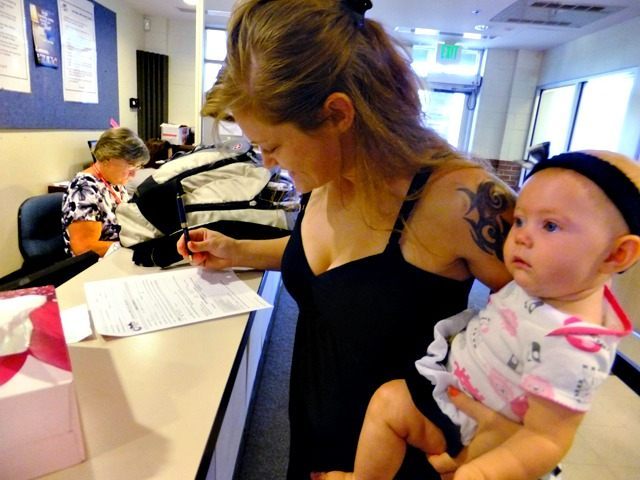Starting late last year, North Carolina began issuing drug tests to new applicants for certain state welfare benefits. Now the state is reporting that 24 percent of the first batch of applicants tested came up positive for illegal drugs.
State officials report that of the 89 applicants given the drug test, 21 of them tested positive. An additional 70 applicants who were told to take the test never showed up for their appointment and consequently never got benefits.
The law requiring drug testing of Work First recipients suspected of drug use was signed into law in 2013 despite Republican Governor Pat McCrory’s veto — his first such action.
In his veto statement, McCrory said the legislature “overreached” with its drug testing requirement. McCrory also said the program is too costly.
“It’s almost impossible for us to have a consistent method and a fair method to implement such a measure in 100 counties in North Carolina,” the Gov. wrote. “I think it’s going to be legally tested, and frankly, it costs too much to do. You won’t get return on your money.”
“This is not a smart way to combat drug abuse,” McCrory insisted.
Still, the drug testing requirement was only levied on the Work First program, not all state welfare programs.
North Carolina’s Work First program assists low-income families, but the majority of those who benefit are children, not the adults. Additionally, adults who receive the aide must participate in work requirements.
The implementation of the law went into effect in August of 2015 after objections were eased and funds were added to the budget to pay for the program.
Now, some results are in. The Macon Telegraph reports that of 7,600 welfare applicants, two percent were referred for drug testing. Nearly one quarter of those tested were found to have illegal drugs in their systems. But the positive tests amount to only .3 percent of total applicants.
Also, despite the positive results, in half the cases benefits were still paid to the applicants because children were involved.
Critics of the program say that at $55 per applicant, the drug testing is too costly. They also say these results prove that few of the applicants are drug users, at least no more or less so than among the general public.
A critic of the program, State Senator Gladys Robinson, D-Guilford, said the results show the testing is ineffective.
“They found very few applicants. Plus, the process is already in place in terms of asking questions and making those referrals [to drug treatment programs],” Robinson told WRAL. “So, we just wasted state dollars, in terms of that piece of legislation and in terms of the time and staff all across the state.”
Follow Warner Todd Huston on Twitter @warnerthuston or email the author at igcolonel@hotmail.com

COMMENTS
Please let us know if you're having issues with commenting.